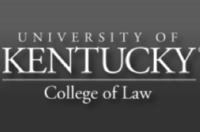 The headline today in the Courier-Journal reports a sharp–even shocking –decline in law school applications for the three KY law schools: 60% at UL and 40% at UK and NKU over the past 3 years. And this decline follows national trends for law school applicants.
The headline today in the Courier-Journal reports a sharp–even shocking –decline in law school applications for the three KY law schools: 60% at UL and 40% at UK and NKU over the past 3 years. And this decline follows national trends for law school applicants.
The verdict? A law school education and the debt incurred to complete it is no longer as good an investment as it once was given the current market crunch for new attorneys and the projected income for those who do find legal work.
That is simple math and, frankly, a bursting of the law school bubble, so to speak, has been long overdue.
But for someone who is a graduate of law school myself and works both inside and outside of a law firm, I would like to make a personal and emotional plea to those who are considering law school but for whom the math doesn’t quite add up.
First, it’s not just about the math. To paraphrase former President Clinton’s famous 1992 campaign slogan, “It’s the education, stupid.” I know that is easy to say for someone like me who went to law school over 20 years ago when tuition was a fraction of what it is today. But I contend a legal education shouldn’t be a decision like investing in a stock in a mutual fund. It is about something far more personal; more intangible; more defining. A law school education is stepping up and putting yourself on the line as you attempt to go through one of the most intellectually challenging, invigorating and gratifying rites of passage that exists in the world of higher education. (And, yes, you learn to write long-winded and dense run-on sentences like the one I just wrote.) But there are many other benefits, too.
When I was an undergraduate student I went to see a movie with a couple of older students and a newly minted attorney. After the movie I asked the attorney what law school was like and how he liked being a lawyer. He said practicing law wasn’t that enjoyable but “being a lawyer” was great. He added, “You just don’t get intimidated by others or put people on pedestals.” He pointed to a TV with President Reagan speaking and added, “I wouldn’t even be intimidated if I were in a small group of people talking to President Reagan.”
That conversation obviously left an impression on me. And it wasn’t from the comment about not enjoying practicing law. I wanted to be able to have a conversation with a President and not be reduced to mush. That happened to me 3 years after I graduated law school and I got to meet President Bill Clinton while he was campaigning in KY for re-election. He was still the President but he was also now–to me—just “a law school graduate.” Like me. And I stood confidently and initiated a short, pleasant and sensible exchange.
But these benefits are only some of the, shall we say, shallower benefits of going to law school. Law school, after tearing you down, does eventually build you back up and boost your confidence. Somewhere late in my first year of law school, I decided, “I had what it takes to be a lawyer.” I had completed a long and difficult assignment and was recognized with an award for my work. I felt catapulted to a whole new level. I went from being a successful college student with a liberal arts degree to someone who was capable of doing important things in the grown-up world.
The day I was offered my first summer internship at a top Kentucky law firm, I cheered alone in my apartment as wildly as I did when UK’s men’s basketball team nearly made the Final Four two years later. Except mine was a victory. A voice inside me —one quieted by the rejection letters from several top law firms earlier that week—roared, a little that day. Or maybe was born. And that inner voice has stayed with me and served me well in periods of self-doubt.
Still and all, attending law school is a very personal and tumultuous life decision. How does one know how to make this decision? I can’t offer a clear-cut guide. I suspect the decision is akin to the decision made by a mountain climber when staring at the highest mountain he or she has ever faced. In the end, they climb it because it is there and that’s what mountain climbers feel compelled to do. This statement, I suspect, will spark a good deal of disagreement. But I will stand by it in the broadest sense.
Put another way, if you are intellectually curious and interested in institutions like government, business, economics, and community and drawn to ideals like justice and fairness, truth and reason –then you are likely an intellectual mountain climber. And need a mountain to climb that’s worth climbing. And law school, I believe, is a worthy mountain to climb.
Legal education is a process that stretches all your intellectual faculties and then hones them in a forceful and focused manner. It may suffocate some creativity but when you are finished, you’ll feel the three years in the legal laboratory helped you be, intellectually, “All you can be.,” as the Army used to promise. Students get whipped into shape through a form of intellectual boot camp. And that process provides an intangible value that can’t be easily quantified or measured on a spreadsheet alongside an entry level banking or finance position that pays the same as the average attorney, including law school, over a 10 year period. Some things just aren’t made to fit into a spreadsheet cell. But they still matter. Maybe a lot. Possibly even a whole lot.
A legal education, I contend, is the best educational preparation for most any profession outside of a technical or scientific specialty. I also have an MBA and am grateful for that education. My business education, if I had to describe it quickly, was “informative” but my legal education was “transformative.” And legal training has been useful to me in all my different and varied occupations–from start up businesses to corporate executive to elected official to practicing attorney to consultant and lobbyist and to adjunct college professor and whatever else may lie ahead. Whatever I am doing in 20 years, if I am still alive, I will owe To some extent, to my legal education. Even if I am a professional fly fisherman. I will at least be an orderly and logical one who is trying to be better than the fly fisherman down river–who didn’t go to law school. (Yes, you will be forever competitive about even the most trivial things thanks to law school. But you were already wired up that way. Law school just ran the electricity through your wiring and lit up your competitiveness more than you ever wanted others to see.
And I believe that those who believe the intrinsic value of a legal education is actually quantifiable are the same people who believe everything is quantifiable (and probably would have been better off taking more liberal arts courses in college). The intrinsic value of a legal education isn’t something with clear contours and can’t even be articulated clearly. But this intrinsic value does become part of a completeness you feel about yourself when you are sitting alone and wonder if you have asked enough of yourself. Sound hokey? Perhaps a little. But “hokey” matters more than we want to admit when we are young–especially when we are trying to seem together but don’t quite feel it yet inside
And then there is the practical benefit of networking that law school provides. If you attend a Kentucky law school you will be in a class with many of Kentucky’s future leaders in their legal, business and political community. You are exposed not only to your class but the two classes ahead of you and behind you. And within 5-10 years you’ll find yourself with “friends” (former classmates) who are now serving as judges and law partners and heads of local organizations or corporate executives and business people as well as elected officials all across our 120 county state. The guy you sat next to in Torts I and wouldn’t dare ask to borrow notes from now has his own courtoom. And his older sister two years ahead of you in law school is now in the state legislature. And you all will belong to the same club they do: Law school graduate
The club or fraternity (or sorority), exists as the result of successfully enduring a common endeavor that at first seems like an overwhelming challenge. But proves not to be. And along the way, you learn your limits –and capabilities. You learn the extraordinary capabilities of others. You face yourself as you really are. And you surprise yourself with what you are capable of doing. I remember during my second year of law school asking a fellow law student I worked with the summer before, John Roach, “How can we possibly finish these assignments? There is no way we can complete all these projects in the short time we have!” I waited anxiously for John to provide a reassuring strategy as he always seemed to do. But this time he didn’t. He just shrugged and answered, “We have to do it. We don’t have any choice.” That is law school in a nutshell. And you somehow get it all done. Because you have to and don’t have a choice.
Finally, and perhaps most importantly, there are deep friendships that develop. My first summer internship I worked in a narrow corridor of carrels that was closed off to the rest of the law firm. We were a bunch of nervous and hard working ambitious young people whose private grandiose plans were counter balanced by our secret fear that we would eventually not amount to much of anything. But we were impressed enough with each other that we started to figure maybe we had more going for us than we thought. And the more we got to know each other the better it made each of us.
That summer I sat next to Robert Weir, who later was one of the best men in my wedding, and is now a U.S Magistrate Judge and finished first in our law school class. Behind me was John Roach, who was general counsel to a governor and served on Kentucky’s Supreme Court and who now has his own thriving private law practice. Next to Robert was Matt Nelson, who ranked among the top 5 in our class and seemed to plow through writing legal briefs like a champion swimmer swims through the water in a meet. Next to Matt was Will Montague, a trusted and long-time friend who has been a successful partner at several of the state’s top law firms and now has his own firm. And across from Will was John Butler, a lovable guy from Green Co, Kentucky who left the law to coach high school basketball instead, breaking the long family tradition of practicing law but boldly and bravely choosing the life he wanted instead —and with all of our blessings and full personal support. And there were other extraordinary people, classmates, who filled up those remaining nondescript but hallowed (to me anyway) carrels making up that narrow corridor of law school interns.
The next summer my closest friend was David Hale, who became Kentucky’s U.S Attorney and is now the nominee for US District Court Judge. And Ben Fultz, who now has his own thriving law firm starting with his last name. And I have had an interesting, rewarding and diverse career myself and have many of these individuals to thank for helping me along the way, personally and professionally. And each of these individuals are, I dare say, friends for life. Even if we go long periods without seeing or talking to one another. And the same can be said with most every other law student in our class who I sidled up next to as we slogged together through the arduous law school mountain climb.
This Sunday afternoon before last I was out driving with my family and got a call from an old and dear law school friend. The call was to tell me of the members or our “corridor group” from the summer of 1990, had taken his life. Although our group hadn’t spoken in weeks or months –or in some cases even years– we quickly lined up as though it were late August in 1990. With our spouses and graying and thinning hair and paunchier midsections, we stood together on a hillside in the rain and watched one of our dear friends be laid to rest.
I hadn’t seen Robert Wier since his investiture ceremony several years earlier. I patted him on the back and hugged him and he hugged me back. He was from Benham, Kentucky and told me shortly after we met, “I thought I wouldn’t like you at all, John. I assumed you’d be a spoiled entitled jerk. But you turned out to be just the opposite. After getting to know you, I now think of you as one of the very best people I’ve ever known.” I consider that passing comment from Robert many years ago, perhaps the highest compliment I’ve ever received in my life. But we were now back in the present and it was nice to be standing next to my friend again after far too many years. I whispered, “I figured they’d have a special seat for you today, Judge.” Robert’s eye’s gleamed as they always had as he smiled warmly, “I’m just hoping to stay balanced on the side of this hill like everybody else.”
After the funeral, many of those from our original summer group and many other former fellow law students, huddled together and talked, and laughed, and talked some more. it was never said, but clear that we were grateful to have each other.. We tried to put together an impromptu lunch but everyone seemed too busy to make it work on the spur of the moment. We promised to get together for lunch sometime soon but probably won’t. But in law school I was taught the perils of ever assuming anything. So maybe we will get together for lunch soon. I hope so.
I hugged John Roach goodbye and thanked him for always “stepping up” in our group. I told him, “If my car broke ever down at 3am and I had only one phone call to make, I would call you. Because I know you’d be there as quickly as you could. There would be a long lecture for me to endure and you would make some good points. But mostly, you would just be there. And I thank you for that.”
I hugged and shook hands with others and waived goodbye and within minutes I was on a conference call and whisked back into my old and own little world. But as I drove away I felt a familiar rush. But not the rush that I could do anything or was finally good enough. But the mature rush of feeling grateful to be part of a special group of special people and honored to call each of them my friend—22 years after law school.
Was that feeling –and all the experiences I just tried to relate— worth the tuition? Were they worth the time and toil? Were they worth all the debt incurred?
Hell yes they were! Every penny. Every moment. Everything.
Perhaps, you might think, this is my conclusion because I believe that the decision of whether to go to law school isn’t mostly about the math. And if you think it mostly a decision about the math, you probably shouldn’t go law school.
But if you see value in the law school experience beyond merely the questionable spreadsheet analysis of “investment dollars” versus “future projected income,” then pack your mountain climbing gear and head up to the base of the mountain. They will be holding a place for you. But sign in quickly so you don’t lose your place. And get ready for an experience of a lifetime that you will be glad you didn’t miss—and one day not be able to imagine your life without.
Am I an idealist? I suppose I am. At least a little bit. And I hope I always will have that small flickering flame of idealism. Idealists never let a little fuzzy math get in the way of a greater cause. And if I can look back on my life and feel that I have succeeded in keeping that flame alive, I will have my law school education, in large part, to thank.

















Leave a Reply